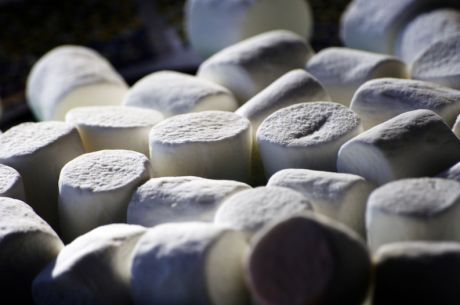Psychological Habits of Successful Poker Players: Self-Confidence

In previous articles in this series, I’ve discussed the various psychological traits possessed by winning poker players. In this final article, I’m going to talk about the trait that may actually be the most important of all: self-confidence.
Self-confidence is simply the belief that you have the ability to accomplish the task at hand. As you can imagine, it is hard to do well at the table if you feel insecure and full of self-doubt. One of the most consistent findings in the peak performance literature is the link between success and self-confidence.
I want to clear up some misconceptions about self-confidence. Some people think it is the equivalent to thinking positively. True self-confidence is a poker player’s realistic belief or expectation about achieving success, and it comes from an accumulation of poker achievements — not simply from wishful thinking.
Compare this to over-confidence which is being unrealistically confident. This occurs when our confidence is greater than our competencies and preparation warrant. Some players honestly believe they are better than they are. Guard against this as it will stunt your poker growth. Basically, you want to have the right amount of confidence — not too much and not too little for best results.
What if you are just starting out and you don’t have many achievements or results? You need to rely on your preparation. The secret to being confident lies in your belief that you can handle any situation that gets thrown at you. To be secure in your poker skills, abilities, and knowledge, you must prepare.
Part of the preparation/confidence cycle involves setting daily and weekly goals for your training. A portion of every day (or most days) should be devoted to working on your game. Your preparation could include reading articles, watching videos, reviewing hand histories, or working with an equity calculator. It is human nature to want to work on things that come easy to us. Resist this urge! Mastering your weaknesses will go a long way to helping you increase your self-confidence.
As you accomplish your daily goals, your self-confidence will naturally increase. The harder you work on mastering your technical skills, the more secure you will feel at the table. The more secure you feel at the table, the more likely it is that you will play well and this increases the chance that you will experience victory.
Another tactic for increasing self-confidence is called modeling. Modeling is a way to experience success indirectly by watching successful players perform a skill or strategy. Pick a player whose game you admire and watch him or her play. Make note of how the player plays hands and responds to certain situations. You can take it a step further by imagining yourself playing your hands in the same manner as your poker hero. This technique is known as mental imagery and it works quite well for increasing self-confidence. Seeing someone else be successful makes us believe that we can be successful, too!
At the end of the day, if you want to be a successful poker player, you need to be self-confident. The way to do this is not to have the conviction that you will always win or never make errors. Rather you need to cultivate the belief that you can correct errors and that you have the ability to improve. If you believe that you can improve and you’re diligent in your preparation, you will increase your confidence.
Armed with self-confidence, you won’t be intimidated by your opponents’ successes or disturbed by your temporary failures. You’ll be able to put wins and losses in the proper perspective given your long-term objectives. Winning is no longer your sole focus; instead your goal becomes continuous improvement.
Dr. Tricia Cardner is the author of Positive Poker with Jonathan Little, available in paperback, audio, and e-book formats as well as through the PokerNews Book Section. She also co-hosts The Mindset Advantage Podcast with Elliot Roe, available for free , and you can follow her on Twitter .
Get all the latest PokerNews updates on your social media outlets. on Twitter and find us on both and !
In this Series
- 1 Psychological Habits of Successful Poker Players: Choosing Excellence
- 2 Psychological Habits of Successful Poker Players: Total Commitment
- 3 Psychological Habits of Successful Poker Players: Emotional Control
- 4 Psychological Habits of Successful Poker Players: Mental Toughness
- 5 Psychological Habits of Successful Poker Players: Self-Discipline
- 6 Psychological Habits of Successful Poker Players: Goal Setting
- 7 Psychological Habits of Successful Poker Players: Self-Confidence








